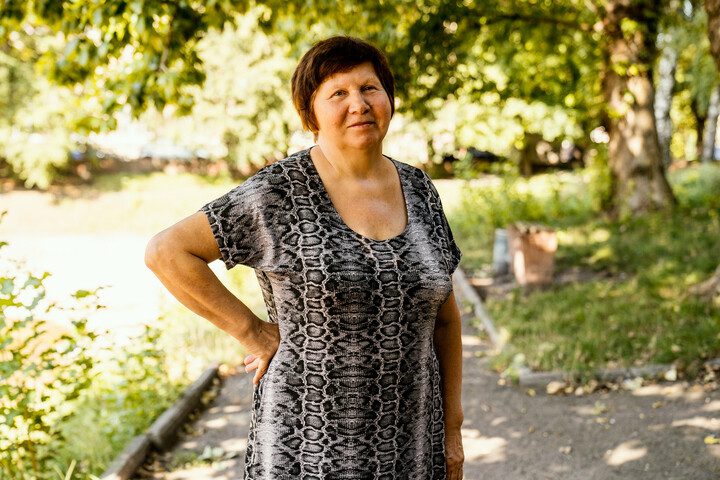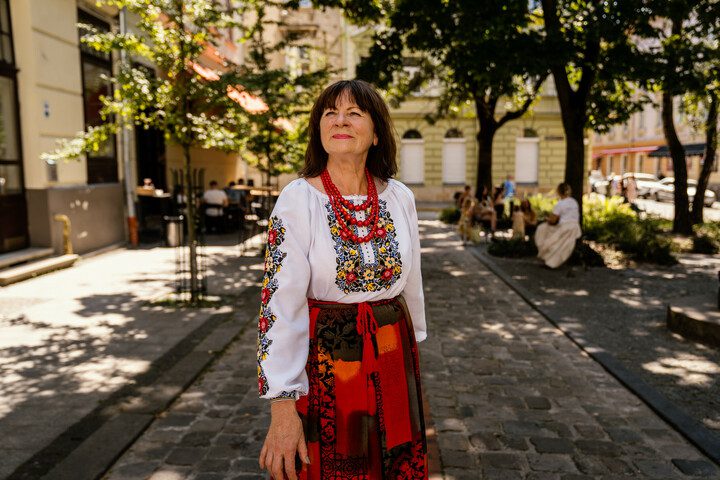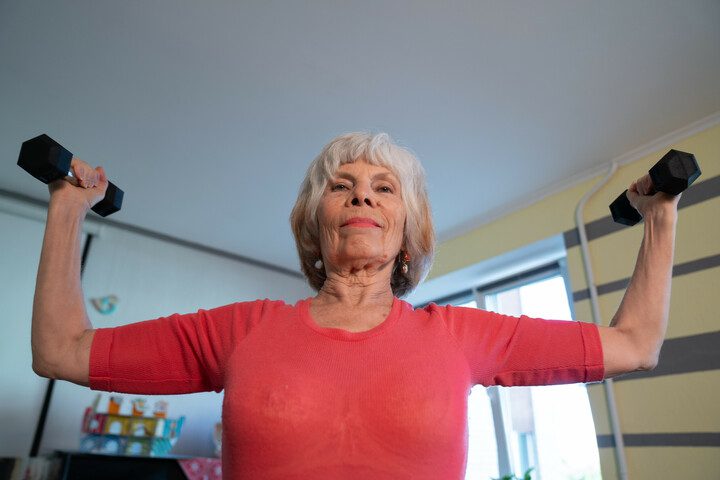Ukraine celebrated its Independence Day on August 24, marking two and a half years since the full-scale invasion began.
In recent days, the humanitarian crisis has only intensified as attacks on civilians and civilian infrastructure in the Donetsk region have led to the evacuation of residents from the towns of Pokrovsk, Myrnohrad, Novohrodivka, Selydove, and Kurakhove. Access to essential resources such as food, medicine, and drinking water is severely limited. Older people, many of whom struggle with health and mobility challenges and lack family support, are among the most at-risk in this crisis.
As the conflict continues, independence holds a profound significance and has taken on a new depth. To understand what it truly means today, we turned to those who have lived through the full arc of Ukraine’s modern history: its older people.
Through their stories, we explore the deep connection between personal and national freedom, reshaped by ongoing conflict and displacement. Their reflections capture their resilience, hope, and an unbreakable belief in the enduring spirit of Ukraine.
Liubov, 64, from Zhytomyr
“My independence is my small business. Throughout my life, I’ve worked at and managed different garment factories. My mother used to sew; now, all my children and grandchildren do, too. It’s our family business. I thought I’d lost everything when we had to relocate but then I applied for grant assistance and moved the business to the Lviv region. I’ve already purchased equipment, trained employees, and even opened a shop. I’m now in contact with the mayor’s and the governor’s offices to straighten out some bureaucratic issues.”
“Doing what I love and having my own income is a big part of independence for me. The war upended my life, and I was devastated at first; but then I picked myself up and said: ‘I can rebuild everything!’ I put faith in myself and my family.”
“It’s not easy: The workshop is located near the Polish border, and I have to take public transport with transfers to get there. I’ve had two strokes, and my legs don’t work so well, so it’s a real challenge. I am not planning to give up, though!”
“My husband and I live in a former monastic cell. He has cancer and is bedridden. The space is damp, there is fungus on the walls. I have to take two flights of stairs to get to the bathroom. It’s far from easy but I try to cope with everything.”
“Ukraine can be very successful because it has good, hardworking people. Although, it has yet to unlock their full potential. Many older people have great business ideas but don’t know how to implement them. Why not teach them how to do things? For example, I would love to take a marketing course because I feel that I lack knowledge in this area. Nowadays, people shop mostly online. I would love to learn how to sell online! Older people can also teach others. I hired ten people and taught them how to sew. Now, they intern with me.”
“My wish for Ukrainians and Ukraine is pretty much the same: to develop economically so we don’t rely on help so much. We have the resources; we just have to use them wisely. I am doing my part. I want to run an honest business and pay taxes that will be used for rebuilding the country. I believe in Ukraine. That’s why I stayed here and am not going anywhere.”

Valentyna, 69, from Nova Kakhovka
“I have actually grown more independent with age. I used to be so busy at work and then with household duties. Despite the war and displacement, I am freer in some ways now. I can bake a pie if I feel like it, or I can take a walk with my friends. I even do part-time volunteer work because it is what I choose to do, not because I have to.”
“Slowly but surely, public opinion is also changing. When I was applying for a job, they didn’t mind my age. I was so surprised because I had been very anxious about it.”
“You could definitely say that I’m an optimist, but I don’t gloss over the hardships either. I spent a month and a half under occupation. I took the long and dangerous evacuation road with two daughters and three grandchildren. I’m a diabetic and insulin dependent. I have problems with eyesight. I just choose to focus on how things improve. My family and I are now safe in the Lviv region. Insulin is available and the state program covers the costs. I had surgery on both eyes. I receive humanitarian assistance. These things have improved my independence immensely.”
“Today, I’m wearing a Ukrainian Vyshyvanka (national costume). In the past, you could have been sent to jail for this! I have a reason to be optimistic about the future. I believe Ukraine will recover, like we recovered from World War II. I believe we will prosper. We just need to stay strong!”

Anatolii, 65, from Mariupol
“What does independence mean for me? It means being able to provide for myself and my family. While I had a job, I could do it. Then came retirement, displacement and war. I now live in a tiny dorm room that I don’t even own and receive a pension that can’t cover much—it’s difficult for me to feel independent these days.”
“When I left my home in Mariupol together with my wife and grandson, I thought we were going away for a couple of weeks. It has been almost three years now. A lot has changed since then, I was diagnosed with cancer. Now most of my pension is used for medications.”
“I’ve worked all my life. I’ve raised two children and adopted my late brother’s son. I’ve made my contribution to independent Ukraine. Now when I’m older and my health is frail, I want to have a pension that allows me to live with dignity. This is the kind of country I want Ukraine to become—one that respects its older citizens’ dignity and listens to their voices.”

Liudmyla, 77, from Nova Kakhovka
“Independence for me is primarily about health. That’s why I try to help others in this. I’m a ballet director by training but after completing a fitness instructor course, I started training others and I’ve been doing it for over 20 years. I even started regular sessions for older people here in the dormitory where I live. It’s such joy to see older women put canes aside because they’ve regained the ease of movement.”
“Moving around geographically is also important, and it is now temporarily restricted for us. I had to pass through 13 military checkpoints to get here from the occupied areas. I can’t go abroad but I don’t really want to. I do more good here.”
“Like all else, independence is unimaginable without love. It can be a romantic or familial love but also love for art, culture. I was 66 when I first picked up a brush and I’ve been painting ever since. My dorm neighbours bring me pizza boxes to paint on because I cannot afford to buy canvases. I often paint the river Dnipro. When I was in a bad mood, I would go swimming there to let the water wash away all negativity. Now its banks are mined and it’s surrounded by charred forests. But in my paintings the Dnipro is strong and powerful and can still take my sadness away. When I paint, I feel truly free.”
“As we reflect on Independence Day, I can only have one message to my peers: We are strong, we are capable. We still have a lot to give to the society.”

War in Ukraine
Older people of Ukraine are in desperate need of humanitarian support.
As a result of the Russian invasion, the lives of millions of older people are at risk. They are in danger of being displaced by the conflict, denied access to essential services such as healthcare and pensions, or forced to flee to neighboring countries. Those unable to move are often abandoned in war-torn areas.
Learn more about our work and how you can help support older Ukrainians today.
